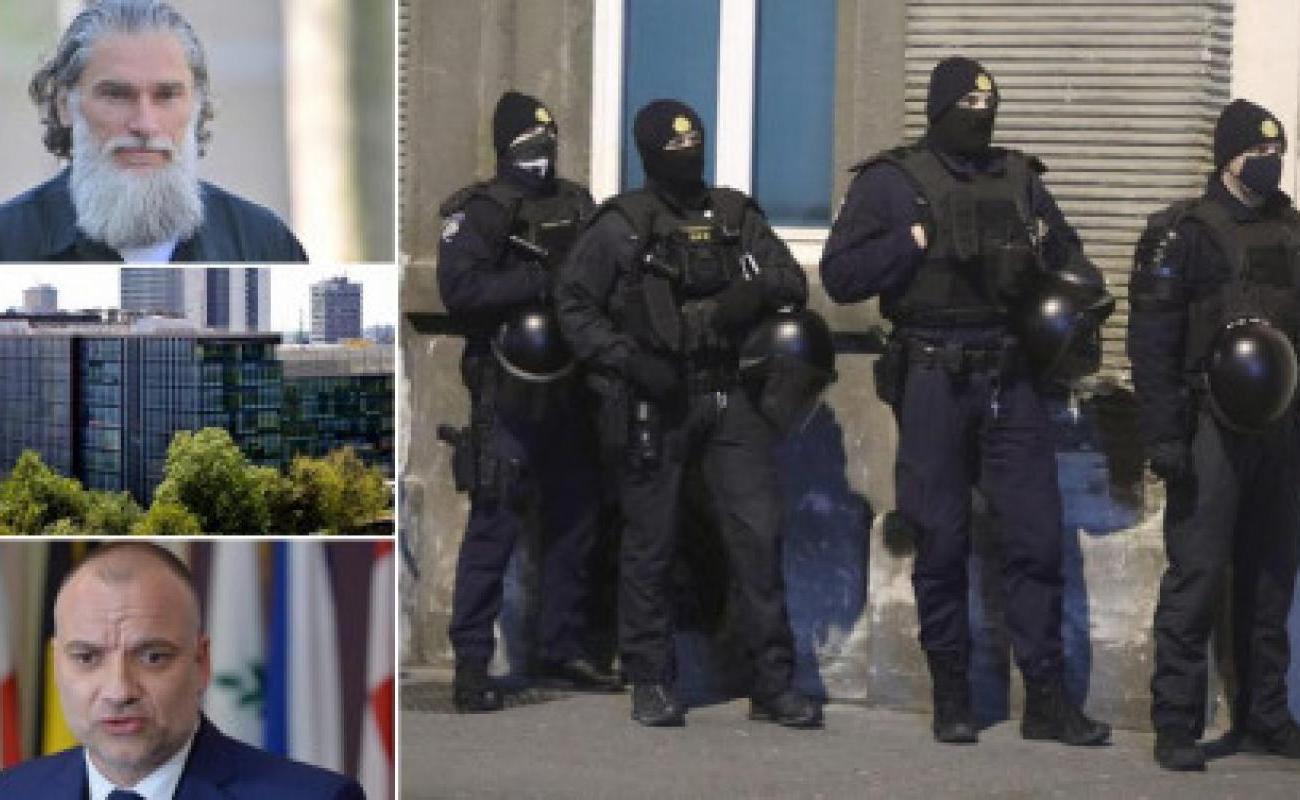'We prevented the formation of paramilitary units in Croatia!'

SOA also announced that it expelled 18 Russian diplomats for espionage in Croatia
Eighteen Russian diplomats and six members of the administrative and technical staff of the Russian Embassy in Zagreb were expelled from Croatia in April 2022 because most of them were engaged in illegal intelligence work in our country, according to the public report on the work of the Security and Intelligence Agency in 2022.
This is the first official information about the reasons for the expulsion of Russian diplomats from Croatia. The Ministry of Foreign Affairs then only briefly reported that Croatia handed the Russian ambassador to Croatia a note about the reduction in the number of diplomatic and administrative-technical staff of the Russian embassy in Zagreb. The Russian Ministry of Foreign Affairs then declared that act hostile and a manifestation of militant Russophobia. A month later, Russia expelled five employees of the Croatian embassy in Moscow.
Russian intelligence operations
In the latest SOA report for last year, under the heading "Foreign intelligence and information activities are present, although not always visible", it is stated that foreign intelligence activities are aimed at collecting data on security, political and economic processes in the Republic of Croatia, especially those that are related to mutual open issues and Croatian policy towards the countries of the Western Balkans. Although it is not explicitly mentioned, from the sentence that "Croatia is the subject of intelligence activities of countries that NATO and the EU consider a security challenge and threat" it is clear that Russia is one of those countries that conducts intensive intelligence activities in Croatia.
The report accuses Russian intelligence services of being behind most of the detected state-sponsored cyberattacks on Croatian institutions over the past year. The attacks increased with the beginning of Russian aggression against Ukraine, and during 2022, 19 such attacks were detected - five more than a year earlier. The primary targets of the attack were the Ministry of Foreign Affairs and the Ministry of Defense. The report covers several pages about the global consequences of Russia's attack on Ukraine, and only three sentences are dedicated to the crash of the Tupolev TU-141 drone near the Stjepan Radić Student Dormitory in Zagreb. It is claimed that the circumstances and intentions of sending the spacecraft, as well as the location of the launch, are still under investigation.
Extremists in Croatia
In the chapter dealing with the activities of extremists in Croatia, the SOA claims that "in Croatian society, extremism does not have a significant foothold on any basis, as well as public support, and thus no strength or potential for destabilizing national security. Extremist groups in the Republic of Croatia, according to on any ideological basis, they have a very small number of followers. However, the possibility of individual incidents and violence by (self-)radicalized individuals cannot be ruled out." In this context, it is stated that in the past period SOA detected attempts by individuals with extremist and militant attitudes to paramilitary organize their followers, with the intention of implementing military training and procurement of weapons, and with the ultimate goal of overthrowing the democratic constitutional order of the Republic of Croatia.
"Although it is a small number of followers without mobilization potential and the possibility of gaining wider public support, their extremist attitudes and intentions, especially in the case of people with mental disorders, represent a security risk". The report mentions, but it is clear that Marko Francisković and his followers who organized several protest rallies throughout Croatia are meant here. During the protest on the Square of the Victims of Fascism, the police arrested one of Francisković's followers with Molotov cocktails and an improvised cold weapon. As for Greater Serbian extremism, the threat from it in Croatia is assessed as low because it has a small number of sympathizers and is not connected to extremist Greater Serbian and Chetnik organizations in Serbia.
Organized crime
In terms of organized crime in Southeast Europe, the "Serbian-Montenegrin" criminal groups, which are mainly involved in smuggling and drug trade, continue to lead the way, the document states. Criminal groups and individuals in Croatia continue to cooperate with members of regional criminal groups, whose members they help to hide in Croatian territory from criminal prosecution and revenge of competitors.
In the report, one chapter is dedicated to jihadist terrorism, which is claimed to be still a threat to European security. It is claimed that there are no strongholds of terrorist organizations in Croatia, and the threat from international terrorist organizations to our country is still assessed as low. However, the possibility of "self-radicalized individuals (so-called lone wolves), inspired by terrorist propaganda, to carry out a terrorist attack is not excluded. Mentally unstable persons are particularly at risk". Several Croatian citizens (mostly with dual citizenship) who joined ISIL are still in camps in Syria where family members of ISIL fighters are housed.
Apparently, Dora Bilić from Zagreb, who joined that terrorist organization in 2011, is also there. The intelligence agency considers people convicted of terrorism, some of whom have already served prison terms, to be a threat to European security, and more than 200 convicts for acts related to jihadist terrorism are being released from prison in Western European countries this year.
